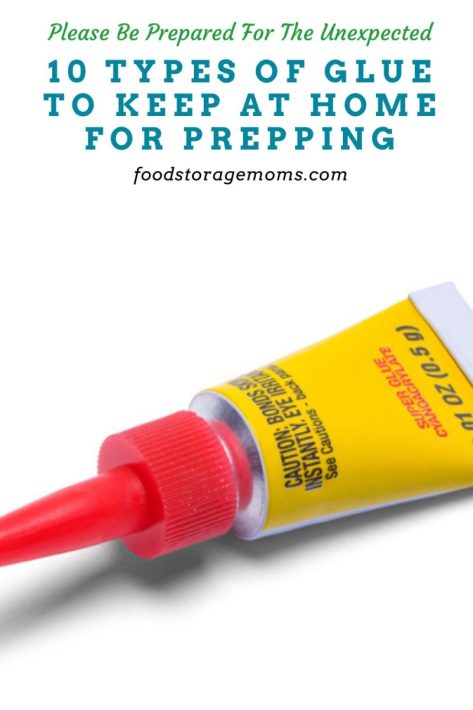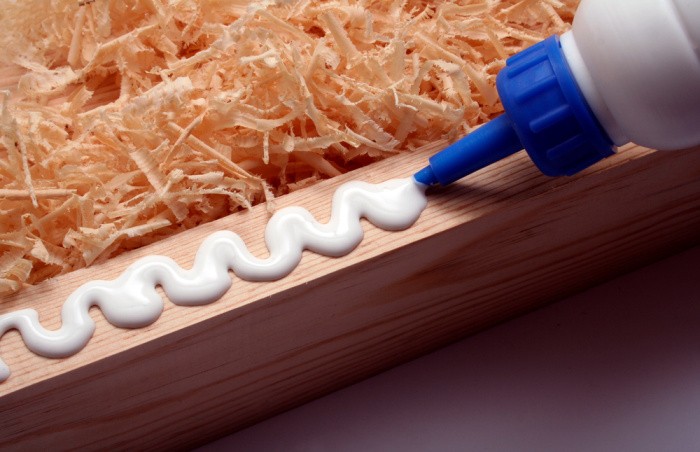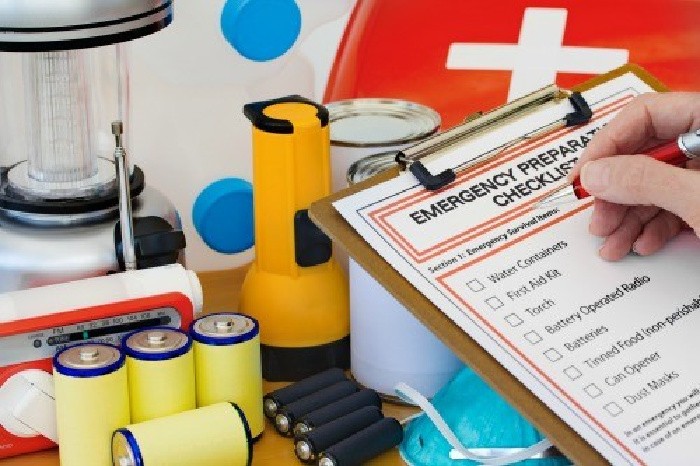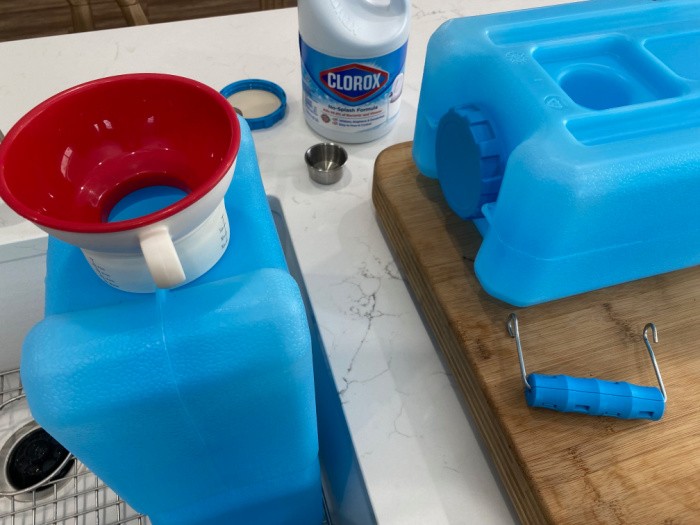10 Types of Glue to Keep at Home for Prepping
When it comes to tackling various projects around the house, having the right adhesive can make all the difference. Whether you’re upcycling furniture, repairing household items, or working on a craft project, having a well-stocked glue collection is essential. There are at least 10 types of glue to keep at home for prepping.

1. All-Purpose Adhesive
An all-purpose adhesive serves as a versatile option for bonding various materials, such as wood, plastic, fabrics, leather, and more. This type of glue provides fast and durable bonds, making it perfect for everyday repairs around the house.
2. Super Glue
Super glue, also known as cyanoacrylate adhesive, is famous for its fast-drying properties. It forms an incredibly strong bond on various surfaces, including glass, ceramics, metal, and rubber. Super glue is ideal for quick fixes and small-scale projects.
3. Wood Glue
As the name suggests, wood glue is specifically formulated for bonding wood surfaces. It creates a strong bond that withstands stress and can be sanded down for a seamless finish. Wood glue is perfect for carpentry projects, furniture repairs, and woodworking enthusiasts. We’ve used Liquid Nails with many of our wood-related projects where we needed a construction adhesive and found it worked great.
4. Epoxy Resin
Epoxy resin is a two-part adhesive that consists of a resin and a hardener. When mixed together, they form a durable and waterproof bond. Epoxy resin is suitable for bonding metal, glass, ceramics, and even some plastics. It’s excellent for fixing broken objects and creating strong bonds in heavy-duty applications.
5. Fabric Glue
Fabric glue is designed to adhere fabrics together without the need for sewing. It’s perfect for repairing clothing, crafting, and creating fabric-based projects. Fabric glue offers a convenient and permanent bond for various fabric types.
6. Silicone Sealant
Silicone sealant is a versatile adhesive commonly used for sealing joints and gaps. It forms a flexible and durable bond that is resistant to water, heat, and weathering. Silicone sealant is perfect for sealing windows, doors, and bathroom fixtures, ensuring a watertight and airtight seal.
7. Hot Glue
Hot glue, or hot melt adhesive, is applied using a glue gun. It melts the solid adhesive, allowing it to bond quickly upon cooling. Hot glue is suitable for a wide range of materials and is commonly used in crafting, DIY projects, and temporary fixes.
8. Foam Adhesive
Foam adhesive is specially formulated to bond foam materials, including polystyrene and foam rubber. This type of glue creates a strong bond without damaging or dissolving the foam’s structure. Foam adhesive is commonly used in upholstery, cushion making, and crafting.
9. Glass Glue
Glass glue is designed specifically for bonding glass surfaces. It provides a clear, transparent bond that is resistant to moisture and UV rays. Glass glue is perfect for repairing glassware, creating glass art, and bonding glass to other materials.
10. Contact Cement
Contact cement is a strong adhesive that creates an instant bond when two coated surfaces come into contact. It’s commonly used for bonding laminates, veneers, and other large surface areas. Contact cement provides a durable and heat-resistant bond, making it ideal for woodworking and furniture repairs.
What types of glue are commonly used for prepping?
There are several types of glue that are commonly used for prepping, including epoxy, super glue (cyanoacrylate), wood glue, and construction adhesive. The choice of glue depends on the materials being bonded and the specific application.
How long does it take for glue to dry?
The drying time or cure times of glue varies depending on the type of glue and the conditions in which it is applied. Some glues dry within minutes, while others may require hours or even days for a complete cure. Follow the manufacturer’s instructions for the specific glue you are using and allow sufficient drying/curing time before subjecting the bond to stress.
Can I use glue for structural repairs?
Glue can be used for certain structural repairs, but it’s important to choose an appropriate adhesive with sufficient strength and compatibility with the materials involved. For major structural repairs, it’s recommended to consult with professionals or follow specific guidelines provided by relevant authorities.
Are there any safety precautions I should take when using glue?
Yes, it’s important to follow safety precautions when using glue. Read and follow the manufacturer’s instructions, including any recommendations for ventilation, protective equipment like gloves, and handling procedures. Avoid contact with skin and eyes, and keep glue out of reach of children. If accidental contact or ingestion occurs, seek medical attention immediately.
Depending on the type of glue and the volume or quantity needing to be dispensed, consider using a caulk gun to apply the glue. Using a spray adhesive can be an issue too since the spray may linger in the air for longer than you expect. As mentioned, make sure the work area is well-ventilated. It only makes sense to keep all glue varieties away from children, not only when being used, but also where it’s being stored.
Some people can be affected by the fumes from certain glue types. Take precautions if you have asthma or other lung-related health issues. Since glues have different ingredients in the mixture, check the label to make sure you feel comfortable using any particular type or brand.
How can I make the glue last longer in storage between uses?
Since contact with air has an effect on glue, it is important to tightly replace the cap on the container after each use. I always wipe the threads on the container with one of many solvents to make sure the cap itself doesn’t get “glued” to the container and prevent further use.
The room temperature can affect the storage life of various glues. Some are more susceptible to hot temperatures and others to the cold. Usually, the container or included instruction sheet will outline best practices in that regard.
What glue types are good to use to close a skin wound?
There are medical-grade skin glues like New Skin liquid glue, Rapid Seal Wound Gel glue gel, Ethicon Dermabond, Surehold Plastic Surgery, and others. These work well with the wound is small, and fairly uncomplicated. Don’t try to use these glues if the cut is very jagged, has become infected, is deep, or if you’re having difficulty getting the bleeding to stop.
More Tips to Check Out
- Creative Ways to Reuse Glassware for Prepping Purposes
- Using Sleeping Bags for Prepping
- The Versatile Uses of Bleach for Prepping
- How to Use Plastic Bags Around the House
Final Word
Having a well-stocked collection of different types of glue at home allows you to tackle a wide range of repair, crafting, and prepping projects. From all-purpose adhesives to specialized options like wood glue, epoxy resin, and fabric glue, each type serves its purpose. There are the types of glue to keep on hand for prepping. If you have some other types you’d like to suggest, please let me know in the comments section below. Thanks for visiting today. May God Bless this World, Linda
Copyright Images: Yellow Tube of Super Glue Depositphotos_459734372_S by PixelRobot, Glue With Blue Tip Depositphotos_1756245_S by jazavac






















Gorilla glue is one of my favorite to keep handy
Good addition, Matt,
I have used several of the Gorilla brand products, including their glue and have found them to be excellent. I especially like the Gorilla tape as well as the glue.
Hi Harry, I love Gorilla glue, I didn’t know they make Gorilla tape! Thanks for the tip! Linda
HI Matt, oh my gosh, I forgot Gorilla Glue, I’m going to add that one, thank you! Linda
I’m certainly glad that you did not include meat glue. LOL
Hi Harry, now I have the giggles, you and I are probably the only ones that get that comment! LOL! No meat glue, nope! Linda
Super glue is great for fixing torn fingernails that are too short to clip. Keep the super glue on them long enough to grow out the nail to file, etc.
Yup, Gorilla Glue is a staple in this house, especially the wood glue. I’ve heard of the tape but haven’t bought any. I seem to just need painters tape (either the blue or green) mostly for sewing projects. Hmm, now that I think about it, we do use duct tape just not often. I can see where more of the latter would definitely be a necessity for “after”.
Hi Robbie, I love the super glue for the torn fingernails, great reminder! I love it! It’s so funny, I used to be able to go out to my garage to remind myself what we have but it’s all in the climate controlled storage units. LOL! Now they are saying our home won’t be finished until January or February. Yes, I have to duct tape my mouth. LOL! That’s why you haven’t seen any pictures posted lately. Patience is not one of my virtues. LOL! Linda
Totally agree with Matt and Harry about Gorilla Glue and Gorilla Tape. Good stuff.
Great article!
HI Ray, thank you my friend, I need to order some Gorilla Tape! Linda
PICTURES!!!! Did I miss PICTURES of your home construction???? Please update me.
HI Chris, I was going to write post about the ADU but it’s now been 6 months (not counting the year to get the permits) and nothing has been done in the last 30 days. It’s frustrating. I have realized I am not very patient, I have always been a numbers person (I owned my own mortgage company for 15 years and was a realtor at the same time). We do not have a contract, I have always used the term “it’s all about the numbers”. I will email you a picture if I can right now. It’s not much to see yet. Linda